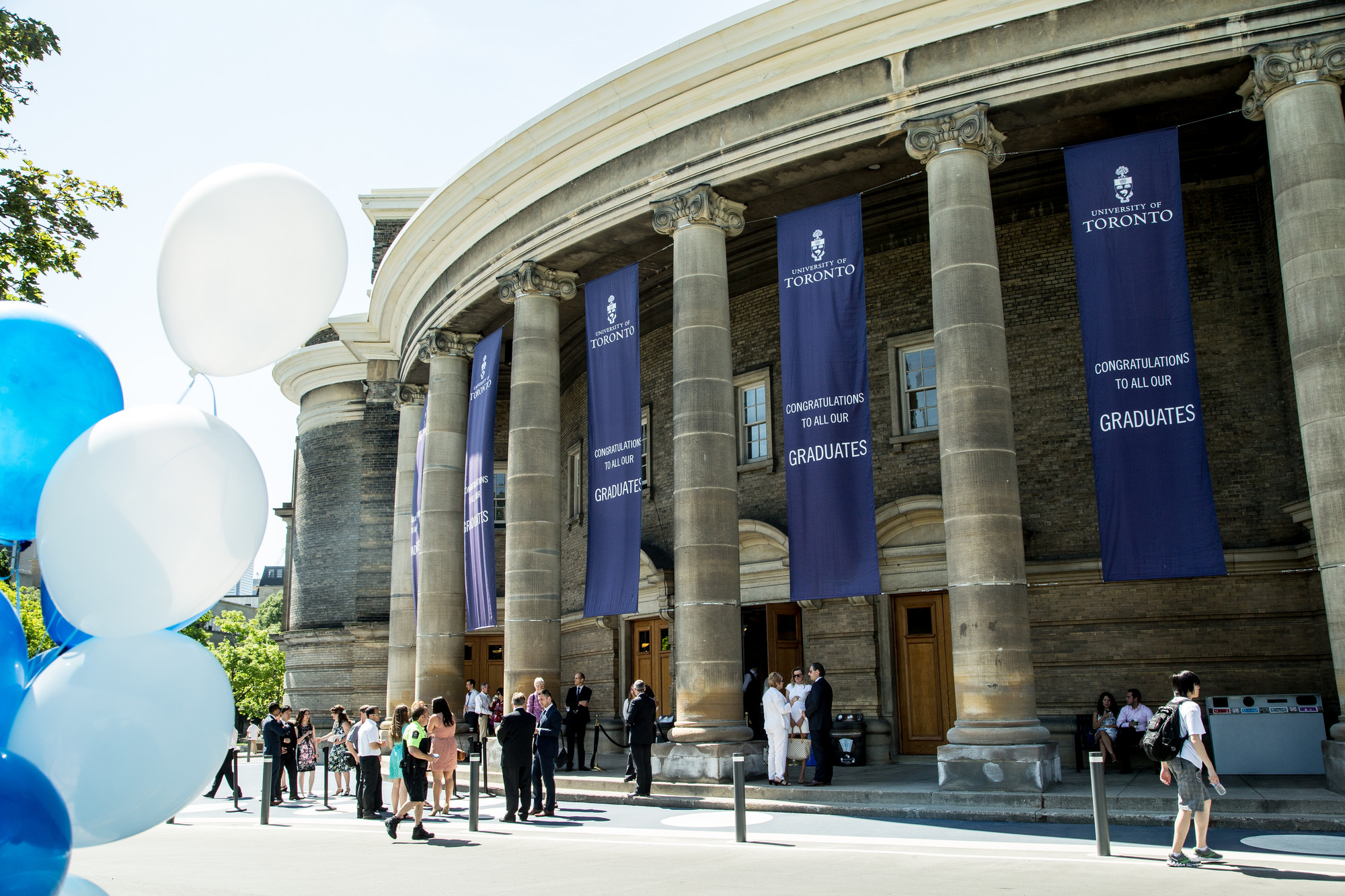In the Project Primer series, we’ll be introducing the design projects our team members are tackling this summer. Stay turned to learn about our work in five different areas! First up: Accessibility at Convocation…
Written by Alex, Rhea Makund, Natasha Cuneo, and Kate Welsh
Did you attend your convocation? For increasing numbers of University of Toronto graduates, the answer is yes. In the past five years, the number of graduates participating in their convocation ceremony has risen by 20 %.
Thus, creating an inclusive community for graduating students is becoming increasingly important. To this end, the Innovation Hub is collaborating with the University of Toronto Accessibility for Ontarians with Disabilities Act Officer to conduct a gap analysis of the accessibility issues with convocation. We will collect data on the full convocation process—from the application to graduate until the ceremony—as experienced by students with lived experience of disability. The aspects of convocation include:
- Getting information and communicating to register, buy tickets, and find your way;
- Interacting with customer service to get gowns and photographs, parking, participating in the ceremony and satellite events, bringing support persons, using medical aids that require an electrical source; and
- Navigating and experiencing the Convocation Hall environment.
By increasing accessibility, this project promotes equity at the University of Toronto. Accessibility involves designing sustainably by providing people with tools to help them live with their disability, not despite it. Everyone should have access to all the resources offered by the University, and nobody should lose their opportunity to participate because of their disability.
To learn how to improve accessibility, we have to listen to the stories of people who have lived experiences with disability. Displaying empathy for them doesn’t require us to walk in their shoes; it just requires us to give them our time, try to understand their stories, and take whatever actions are necessary to better their lives. We will do this by conducting interviews with students who are in the process of graduating and want to share their convocation experience.
From these interviews, and working in collaboration with Kate Welsh, the Project Coordinator, we will identify the real and perceived barriers faced by graduates throughout the convocation process and the gaps in accessibility that need to be addressed. We’ll also offer recommendations for short, medium, and long-term steps the university can take to ensure the accessibility of the convocation process.

0 comments on “Project Primer: Accessibility at Convocation”